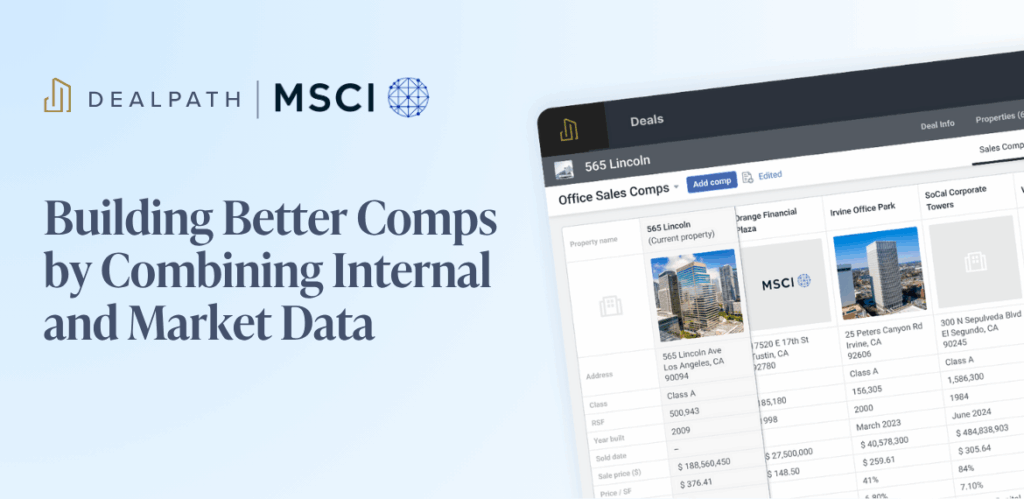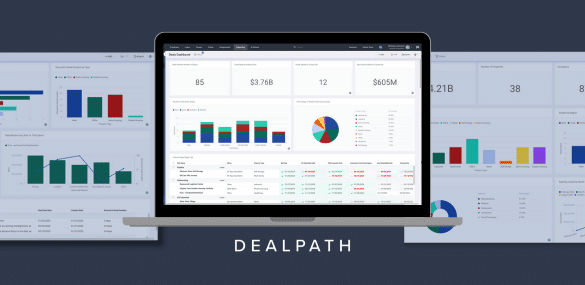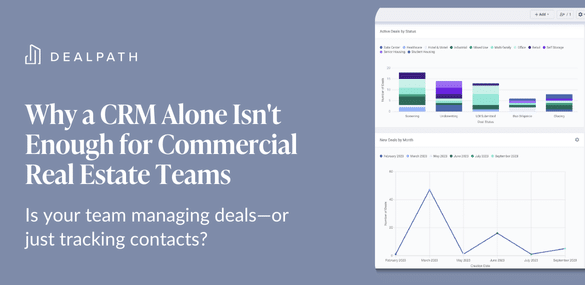Reviewing more opportunities at a faster velocity is key to effectively growing your firm’s portfolio with lucrative investments. However, doing so takes a strategic, disciplined and volume-driven approach. Scaling and streamlining deal flow not only drives efficiency, but positions your firm to succeed by helping you uncover profitable opportunities before competitors. In this blog post, we’ll outline how your firm can leverage technology like a deal management platform to scale deal flow.
What Is Deal Flow in Commercial Real Estate?
The more deals aligned to your investment strategy that your firm can source, the wider the array of opportunities it can choose from. That’s why leading investment firms have systematized real estate deal flow by driving deal volume and velocity with deal management software. When screening one deal takes hours of manual data-driven analysis in Excel, other opportunities could slip through the cracks.
Driving deal flow with a deal management platform enables you to manage, track, analyze and report on deals all in one place. As a result, your firm can work more strategically and with less effort to identify the right opportunities.
5 Tactics to Scale Deal Flow
1. Scale Deal Flow By Sourcing More Deals in Your Target Market
Naturally, scaling and streamlining commercial real estate deal flow begins with increasing deal volume. By screening more deals, your firm can work with a larger pipeline, creating a wider pool of options and simultaneously building a larger knowledge base for future investment decisions.
Industry relationships, particularly with brokers, is one tried-and-true way to source more deals. The more that your firm can build rapport with brokers, the more fruit these relationships will bear. Other connections like property managers, investors and regular collaborators can also become a reliable source for new deals.
2. Crystallize Investment Criteria and Strategy
Scaling deal flow is only productive when your firm develops clear, strategic investment criteria to compare each deal against. To avoid wasting resources, crystallize your investment criteria and concentrate sourcing efforts on deals that meet this profile. Clarifying the target markets, asset classes, and other criteria your firm searches for will enable your team to make faster decisions when deciding whether to reject or pursue new deals.
3. Leverage a Cloud-Based Platform to Manage Deals
Managing your pipeline in an Excel-based spreadsheet can often create more inefficiencies than it solves, particularly when your team is competing for editing access, or when it takes time to track down other information and deliverables.
The right deal management software will drive deal flow by allowing your team to source, track, manage and report on deals in one platform. This operational efficiency enables investors to find relevant information, whether that might be historical data or an LOI, in seconds. As a result, your team can prioritize value-add work, spend less time and effort communicating internally, and confidently work with accurate data.
4. Uncover Pipeline Bottlenecks and Refine Deal Workflows
When individual steps in the pipeline process consume significant time, your firm might have an opportunity to streamline deal flow simply by reconsidering workflows to eliminate bottlenecks. Auditing how you screen, review and underwrite deals can often surface latent inefficiencies that could be stopping deals in their tracks. Operational analytics can aid in this discovery process by uncovering bottlenecks, helping you prioritize improvements.
Deal management software like Dealpath empowers firms to operationalize their pipeline process by standardizing real estate deal flow with bespoke workflows. For example, when a deal enters the contract phase, everyone on the acquisitions team could receive new tasks, which are auto-assigned to them through role-based templates. The more polished your workflows are, the faster the team can make an informed, data-driven decision.
5. Leverage Powerful Data-Driven Analytics
Data often speaks the loudest about the viability of an investment, but manually aggregating data and building Excel models takes significant time, and may create more questions than answers. After all, how can your team find comps when data is unstructured and scattered between various folders?
Data-driven real estate analytics can be a powerful tool that allows you to analyze deals based on historical data related to the specific market and asset class. Instead of relying on intuition or potentially outdated data, you can confidently make fast, data-driven decisions. Whether you reject a deal immediately or choose to move forward, data analytics are essential for investors building a competitive portfolio.
8 Features To Look For in a Deal Management Platform
Deal management software can prove invaluable as your firm expedites the pipeline review process. But for firms taking their first foray into deal management, there are many factors to consider, such as workflows, data analytics and real-time visibility. Learn how you can find the right deal management platform by downloading our free guide.
Download Guide


